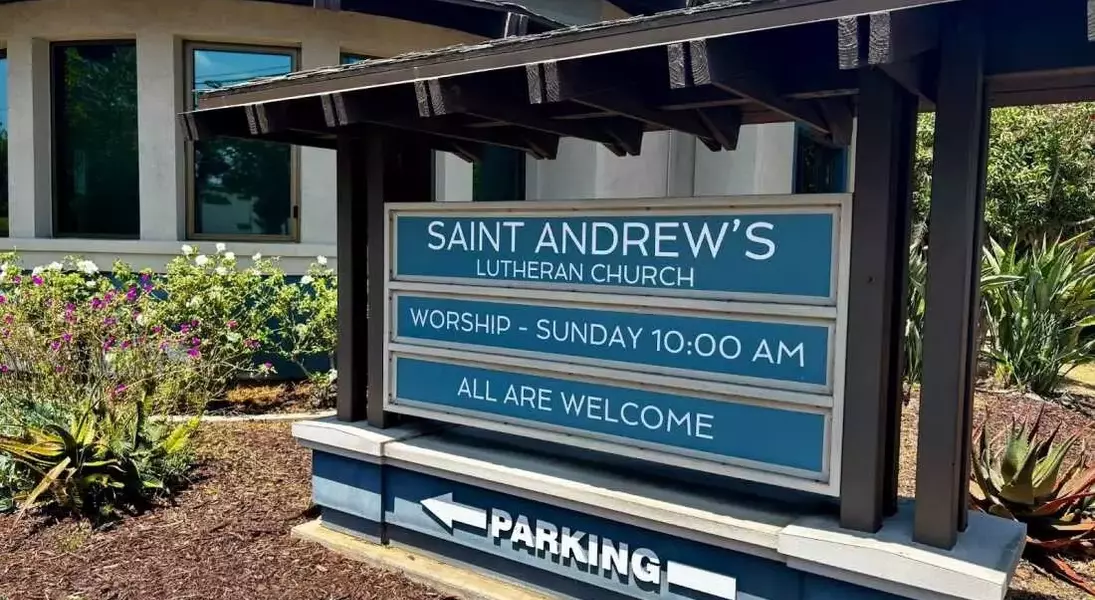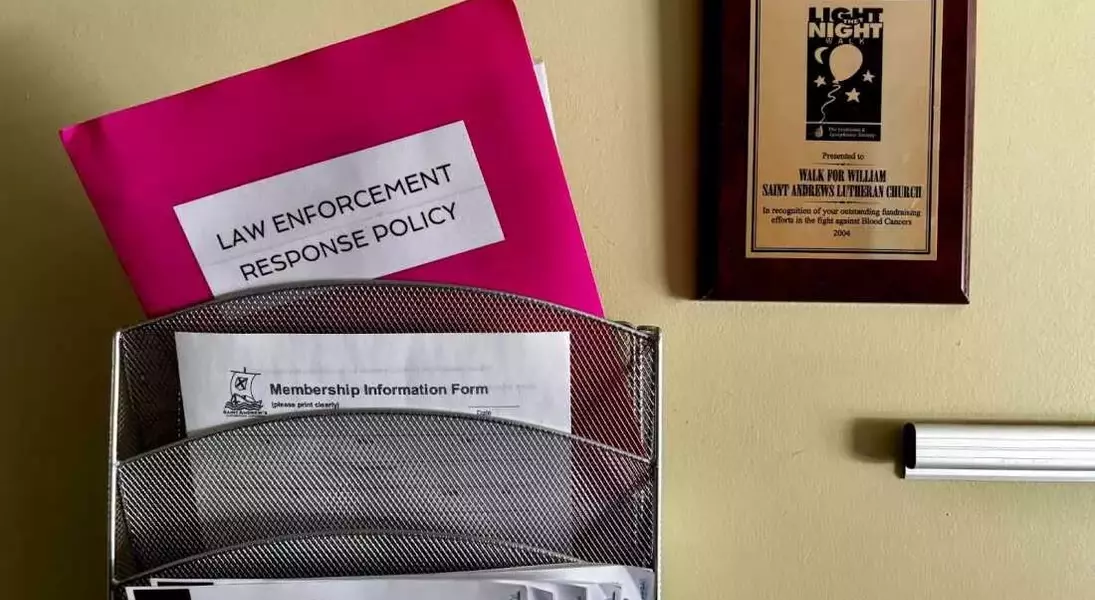



In a significant move reflecting heightened concerns over immigration enforcement, numerous faith communities across Los Angeles are meticulously crafting and implementing emergency protocols. This comes as a direct response to the Trump administration's recent revocation of a long-held policy, which once discouraged immigration agents from operating within religious sanctuaries. These proactive measures are designed to inform congregations about their legal protections and to establish clear, actionable steps should federal immigration officials appear at their doors. The religious sector's unified effort underscores a deep commitment to protecting vulnerable populations and upholding the sanctity of sacred spaces amidst an evolving enforcement landscape.
Los Angeles Faith Communities Brace for Immigration Enforcement Actions
In the vibrant metropolis of Los Angeles, on a recent July day, Pastor Caleb Crainer of St. Andrew's Lutheran Church in West Los Angeles revealed the meticulous planning undertaken by his congregation. Following the Trump administration's surprising decision to lift the long-standing guidance advising immigration agents to steer clear of houses of worship, Pastor Crainer immediately initiated the development of robust contingency plans. These comprehensive strategies are meticulously organized into readily accessible pink binders, strategically placed at various entry points throughout the church's buildings, including the main sanctuary and the bustling fellowship hall. These binders serve as critical guides, outlining step-by-step responses for church personnel, volunteers, and congregants if immigration officers arrive. They include vital information such as examples of legitimate court orders, 'know your rights' materials, and essential contact details for church leadership and immigration advocacy organizations. Pastor Crainer's dedication extends to conducting role-playing exercises, ensuring that every member of his flock is prepared to respond appropriately and calmly.
This proactive stance is not isolated to St. Andrew's Lutheran Church. Indeed, scores of congregations across the vast Los Angeles area have adopted similar preparedness measures, spurred by the increasing focus of federal immigration authorities on the region. Religious leaders have been working hand-in-hand with legal experts and immigrant rights groups, equipping themselves and their communities with the necessary knowledge to navigate these uncertain times. A crucial lesson learned is the distinction between public and private spaces within a house of worship; while immigration agents may enter public areas like sanctuaries, they are legally prohibited from accessing private spaces, such as offices or sacristies, without a valid warrant. Furthermore, congregations are actively distributing 'know your rights' brochures in both English and Spanish, reaching not only their members but also residents in the surrounding neighborhoods. A deliberate policy of not documenting the immigration status of church members has also been adopted to protect their privacy and foster a safe environment.
The collective actions of faith leaders in Los Angeles predate President Trump's return to office in January, reflecting foresight stemming from the rhetoric of the 2024 presidential campaign. Jennifer Gutierrez, the Executive Director of Clergy and Laity United for Economic Justice, confirms that extensive 'know your rights' and rapid response training sessions have been ongoing for months. As early June witnessed an escalation in detentions by immigration agents, the advocacy efforts intensified. Gutierrez noted that clergy members, often in their distinctive clerical attire, have been visibly present at street demonstrations, offering a peaceful presence and demonstrating unwavering solidarity with affected communities. Her organization also diligently attends court hearings and maintains a weekly vigil outside the federal building in downtown Los Angeles, continuously monitoring the situation and advocating for justice. The profound concern within the religious community was further underscored by the Catholic bishop of San Bernardino County, who, in a rare move, granted a special dispensation from Mass attendance to Catholics fearful of detention by immigration agents. In some congregations with large immigrant populations, services have even shifted online, mirroring practices from the pandemic, to mitigate the risks associated with communal gatherings. Some ministers have gone as far as personally delivering communion to parishioners, ensuring spiritual nourishment without compelling individuals to risk exposure to law enforcement at church services.
A Timeless Commitment to Compassion and Justice
From a reflective standpoint, the current predicament faced by Los Angeles' faith communities evokes a powerful echo of historical struggles, particularly the tribulations of the early Christian church. Much like those who sought solace and strength in their faith amidst persecution by the Roman Empire, today's congregations find themselves drawing parallels to biblical narratives of resilience and communal care. Pastor Caleb Crainer poignantly reminds us that the essence of Christian belief is rooted in the story of Jesus, a figure who, as a vulnerable individual, challenged established powers and ultimately faced arrest, a sham trial, and public execution. This profound connection to a foundational narrative of solidarity with the oppressed fuels the unwavering resolve of these religious institutions. It serves as a potent reminder that, regardless of the era, the fundamental calling of faith often lies in extending compassion, defending human dignity, and providing sanctuary to those in need, especially when the social and political winds turn harsh against them.
